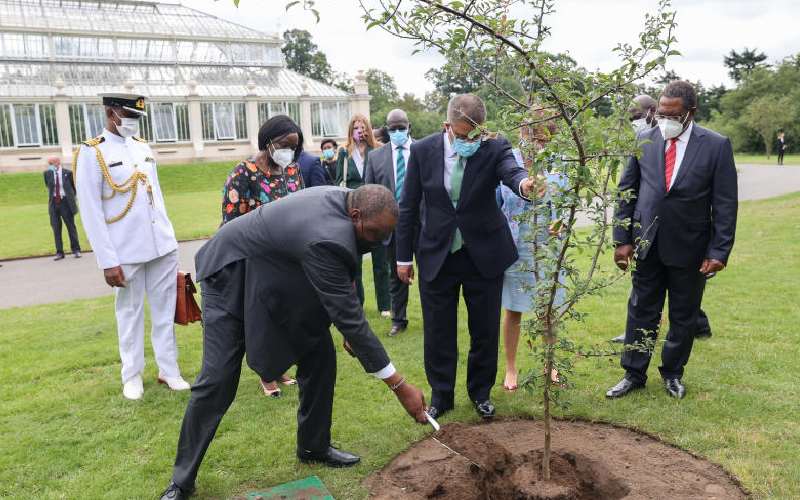×
The Standard e-Paper
Stay Informed, Even Offline

President Uhuru Kenyatta plants a tree after bilateral talks with COP26 President-Designate Alok Sharma and his delegation that included British High Commissioner to Kenya Jane Marriot at Kew Gardens in London. [PSCU, Standard]
As the world converged in Glasgow for COP 26 (Conference of Parties to the UN Framework Convention on Climate Change), some pertinent issues on climate change have been discussed to achieve net-zero emission by 2050.